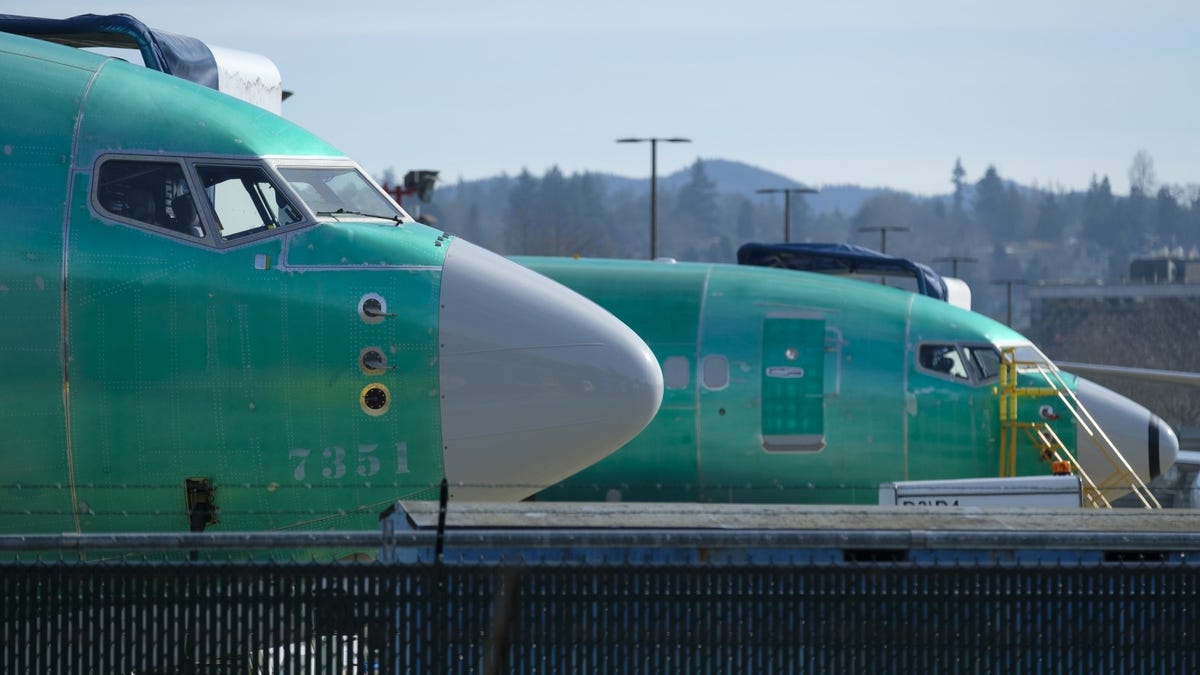Boeing is having a rough time of it right now, with parts falling off its planes left, right and center. Just last week, a wheel came loose and smashed through a car, and earlier this year the door from a 737 Max aircraft broke off mid-flight. That mid-air disaster sparked an audit from the Federal Aviation Administration, which has gone far from well.



How does this part (which is what the headline refers to and presumably the most outrageous inspection finding)
have anything to do with the opening of the article
???
The article misses the whole point, which is that the audit did not uncover the sources of these incidents.
The part about the crappy QA process explains why the delivered planes keep having problems.
Not to me. Absence of QA allows faulty parts to make it into a plane, it does not explain why there are faults in the first place. For doors and wheels popping off there have to be either lethal part design mistakes, parts made from play doh instead of aluminium/steel, or the people on the assembly line throwing fasteners in the bin instead of putting them on. It’s not like a door pops of because its seal touched soap once and somebody poked an unverified piece of plastic at it. Especially in aviation, where you need to have redundancies.
I think it’s an issue of tolerance. They should be using gauges to test the fit, because hotel keycards can vary in thickness. Gauges are stupid cheap compared to the cost of the plane. It’s evidence of cost-cutting bullshit.
Same with using dish soap as a lubricant. It’s the wrong material for the job. Soap leaves a residue, and dissolves other lubricants. If there’s supposed to be lubricant in the door, the soap is a bad choice. If there isn’t supposed to be a lubricant in the door, then soap is a bad choice. It’s like Schrodinger’s lubricant. You won’t know if it’s a problem until it’s a problem.
No manufacturing process or material design is perfect. You get as close as possible, and then QA catches the mistakes.
For Boeing, it sounds like they didn’t try very hard to perfect their processes, and then didn’t bother with QA.
The issue with those items is that they are not in the list of approved materials for Boeing’s manuals. It might be normal to see these sort of practices in a line maintenance environment where it’s hard to get the proper tooling; but the manufacturer should be abiding by it’s own regulated publications. It’s just more symptoms of their cost cutting and schedule rushing measures that are leading to their quality issues.
My company has been spending a lot of time and money doing warranty repairs on brand new airplanes that we received from Boeing over the past couple of years. It’s very concerning when a customer has to fix things that should have never left the factory floor.
The audit was not about finding the exact cause of the previous incidents:
The audit looks at current production to assess wether or not everything is being done to prevent further hazards (they failed over a third of the inspections). Determining what caused the past incidents would be assigned to the equivalent of crime scene investigators (FAA detectives?).
Determining production line compliance and investigating the cause of a major malfunction are two entirely different beasts.
To expand on “FAA detectives”, a specific incident would be investigated by the NTSB (National Transportation Safety Board).
Neat fact to know. I always love learning new things.
In addition to what the others said, I think the wheel thing was probably not boeing’s fault. That plane was delivered to United 22 years ago. It could have been a manufacturing error, but it was probably a maintenance error.